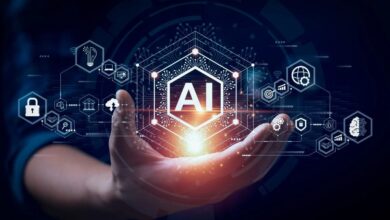
The whispers have become a roar. Artificial intelligence (AI) is no longer a futuristic fantasy; it’s reshaping the employment landscape at a dizzying pace. While some fear widespread job displacement, others see unprecedented opportunity. The key to surviving and thriving in this new age isn’t resisting the inevitable, but adapting to it. This means understanding the changing dynamics, recognizing your unique human strengths, and proactively investing in your future.

Understanding the AI Landscape:
AI is not a monolithic entity. It encompasses various technologies, from machine learning and natural language processing to computer vision and robotics. These technologies automate routine tasks, analyzing vast datasets, and even creating original content. This naturally leads to concerns about job security, particularly in sectors heavily reliant on repetitive processes.
However, it’s crucial to remember that AI is a tool. Like any tool, its impact depends on how it’s wielded. While some jobs will undoubtedly be automated, new roles centered on developing, implementing, and managing AI systems will emerge. Furthermore, AI has the potential to augment human capabilities, allowing us to focus on tasks requiring creativity, critical thinking, and emotional intelligence – areas where humans still hold a significant advantage.
Future-Proofing Your Skillset:
The question then becomes, how do we equip ourselves for this evolving job market? The answer lies in cultivating a blend of technical and uniquely human skills:
•Embrace Lifelong Learning: The rapid pace of technological advancement demands continuous learning. Identify emerging trends in your industry and proactively seek opportunities to upskill or reskill. Online courses, boot camps, and professional certifications can provide valuable knowledge and demonstrate your commitment to staying ahead of the curve.
•Become Tech-Literate: While you don’t need to become a coding expert, developing a basic understanding of AI concepts and their applications in your field is essential. This allows you to effectively collaborate with AI systems and leverage their power to enhance your productivity. •Sharpen Your Critical Thinking and Problem-Solving Skills: AI excels at processing information, but it still struggles with complex problem-solving and nuanced decision-making. Honing these skills will make you invaluable in roles requiring strategic thinking, analysis, and innovation.
•Cultivate Creativity and Innovation: Machines can generate content, but they lack the spark of human creativity. Nurturing your creative abilities, whether in artistic pursuits, problem-solving, or strategic planning, will set you apart in a world increasingly reliant on automation.
•Develop Emotional Intelligence and Interpersonal Skills: As automation takes over routine tasks, human interaction becomes even more valuable. Building strong communication, empathy, and collaboration skills will be crucial for navigating complex interpersonal dynamics and building effective teams.
•Focus on Adaptability and Resilience: The only constant in the age of AI is change. Cultivating adaptability and resilience will allow you to embrace new challenges, navigate uncertainty, and thrive in a constantly evolving work environment.
•Specialize in Niche Areas: Identify specialized areas within your field where human expertise is still highly valued. This could involve developing deep domain knowledge, mastering a complex skill, or focusing on a specific customer segment.
•Embrace Human-Centered Skills: Focus on uniquely human skills: empathy, compassion, complex communication, ethical decision-making, and creative problem-solving. These are the skills that AI cannot replicate and will become increasingly valuable in the future.
Navigating the Transition:
Adapting to the AI revolution requires more than just individual effort. Businesses, educational institutions, and governments also have a role to play in ensuring a smooth transition:
•Businesses: Companies must invest in training and reskilling programs to equip their workforce with the skills needed to thrive in the age of AI. They should also focus on creating new roles that leverage the unique strengths of both humans and AI.
•Educational Institutions: Educational systems need to adapt curricula to reflect the changing demands of the job market. This includes incorporating AI-related subjects, emphasizing critical thinking and problem-solving skills, and fostering a culture of lifelong learning.
•Governments: Policymakers must address the potential societal impact of AI, including job displacement and income inequality. Investing in reskilling initiatives, supporting displaced workers, and promoting responsible AI development are crucial steps.
The Future of Work: The future of work in the age of AI isn’t about humans versus machines. It’s about humans with machines. By embracing lifelong learning, cultivating uniquely human skills, and adapting to the changing landscape, we can not only survive but thrive in this new era. The future of work is one of collaboration, where humans and AI work together to achieve greater productivity, innovation, and progress. Embracing this collaborative future is the key to unlocking the full potential of both human ingenuity and artificial intelligence.




